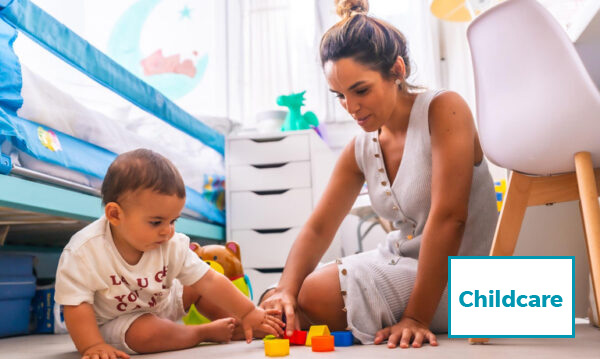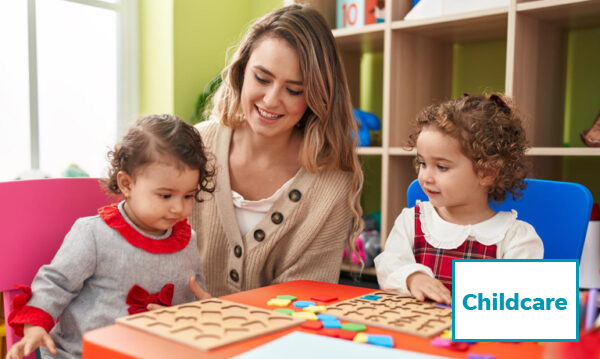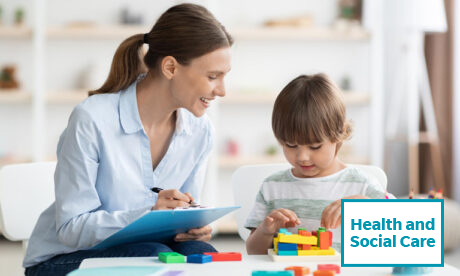Develop Positive Relationships with Your Child to Support Their Mental Health

Children’s Mental Health Week plays a key role in shining a light on mental wellness, emotional health, and the need to build solid relationships that help a child’s psychological growth. In our busy world today, we need to put young people and mental health at the top of our list. When we think of mental health as how someone feels, thinks, and interacts with others, we can get a better grip on how it shapes a child’s growth overall.
Why Good Carer Relationships Are Important
for Children’s Health and well-being
Early ties between caregivers and children have the biggest impact on a child’s mental health. Good parent-child relationships lower the likelihood of anxiety, depression, and behavioural problems while fostering social skills, resilience, and confidence. When children feel heard, valued, and supported, they develop a healthy self-image and are better equipped to cope with stress. During Mental Health Week, let’s reflect on how we can enhance our bonds with children to strengthen their emotional health and mental awareness.
Tips for Developing Closer Relationships with Your Kids
1. Encourage open communication
Having honest conversations with children can greatly enhance their mental health. Provide a safe environment for children to communicate their feelings and ideas. Instead of giving them quick fixes for their issues, listen to them, be understanding, and offer guidance. This promotes trust and enhances their psychological well-being.
2. Make time for each other
Today, distractions are everywhere. Making time for meaningful activities, such as reading, gaming, or debating life, reveals that these behaviours are important. Engaging in these activities can improve your relationships and contribute to your mental health, resulting in a good family life. Consider doing them together, such as cooking, crafting, or a day outdoors. Not only will these experiences make your relationships strong, but a child will feel safe and included, too.
3. Create a home that shows care
Children do best when safe, secure, and supported emotionally. Having routines, explicit rules, and positive feedback for desired behaviour helps them trust and feel secure and is beneficial for mental well-being. Telling them in advance about what will occur in a routine helps them have a greater sense of mastery and less anxiety and tension. A patient, caring, and consistently supportive family environment can lay a firm basis for long-term resilience and mental health.
4. Provide teaching on emotional intelligence
Teaching youngsters how to identify, understand, and manage their emotions helps them develop strong character and social skills. Model healthy emotion management for them, make them witness how people feel, and provide them with tools for challenging times to enhance their emotional well-being. Ask kids to label their feelings and speak about them, in this way, they will learn about themselves. Pretending, reading, and practicing mindfulness can enhance them in emotion management skills, too. Instructing kids in problem-solving and providing them with a supportive presence during challenging times can enable them to manage feelings effectively.
5. Support their education and interests
Encouraging your child’s interests and academic growth will make them feel more successful and purposeful. Celebrate their triumphs, encourage them to overcome challenges, and emphasise the need of lifelong learning. Having access to mental health publications and resources can also help people learn how to improve their psychological well-being.
Improve Your Knowledge About Child Mental Health
During Children’s Mental Health Week
During Children’s Mental Health Week, you may learn more about childcare and improve your ability to help young people with their mental health. This should be understood by parents, caregivers, and anybody looking to work in childcare. With the proper training, you may learn a lot about how children think and develop.
Children’s Mental Health Week prompts us to remember how significant part positive relationships have in supporting mental wellbeing and mental health. By prioritising positive relationships through positive communications, high emotional intelligence, and having high-quality times together, we create a positive environment in which our children can flourish.
If you’re looking to enhance your parenting skills or pursue a career in childcare, explore our courses at South London College. Invest in your child’s future and support their mental wellbeing—because every child deserves to feel safe, loved, and valued.
Let’s work together to create a world where children’s mental health is a priority.
Take Professional Childcare Training to Improve Your Parenting Skills
If you’re looking to enhance your parenting skills or pursue a career in childcare, explore our courses at South London College. Invest in your child’s future and support their mental wellbeing—because every child deserves to feel safe, loved, and valued.
🛈Level 3 Diplomas for the Children and Young People’s Workforce (NVQ/RQF)
Learn the essentials of dealing with youngsters aged one to nineteen. You can also gain UCAS points
🛈Level 3 Diploma in Early Years Education and Care (Early Years Educator) (NVQ/RQF)
This course aims to help children develop from birth to age seven. A*-D grades can yield up to 112 UCAS points.
🛈Level 5 Diploma in Leadership for Health and Social Care and Children and Young People’s Services (NVQ/RQF)
This training is appropriate for assistants and deputy managers looking to manage teams in child and adolescent services. You can complete this qualification in 6-9 months.






0 responses on "Develop Positive Relationships with Your Child to Support Their Mental Health"